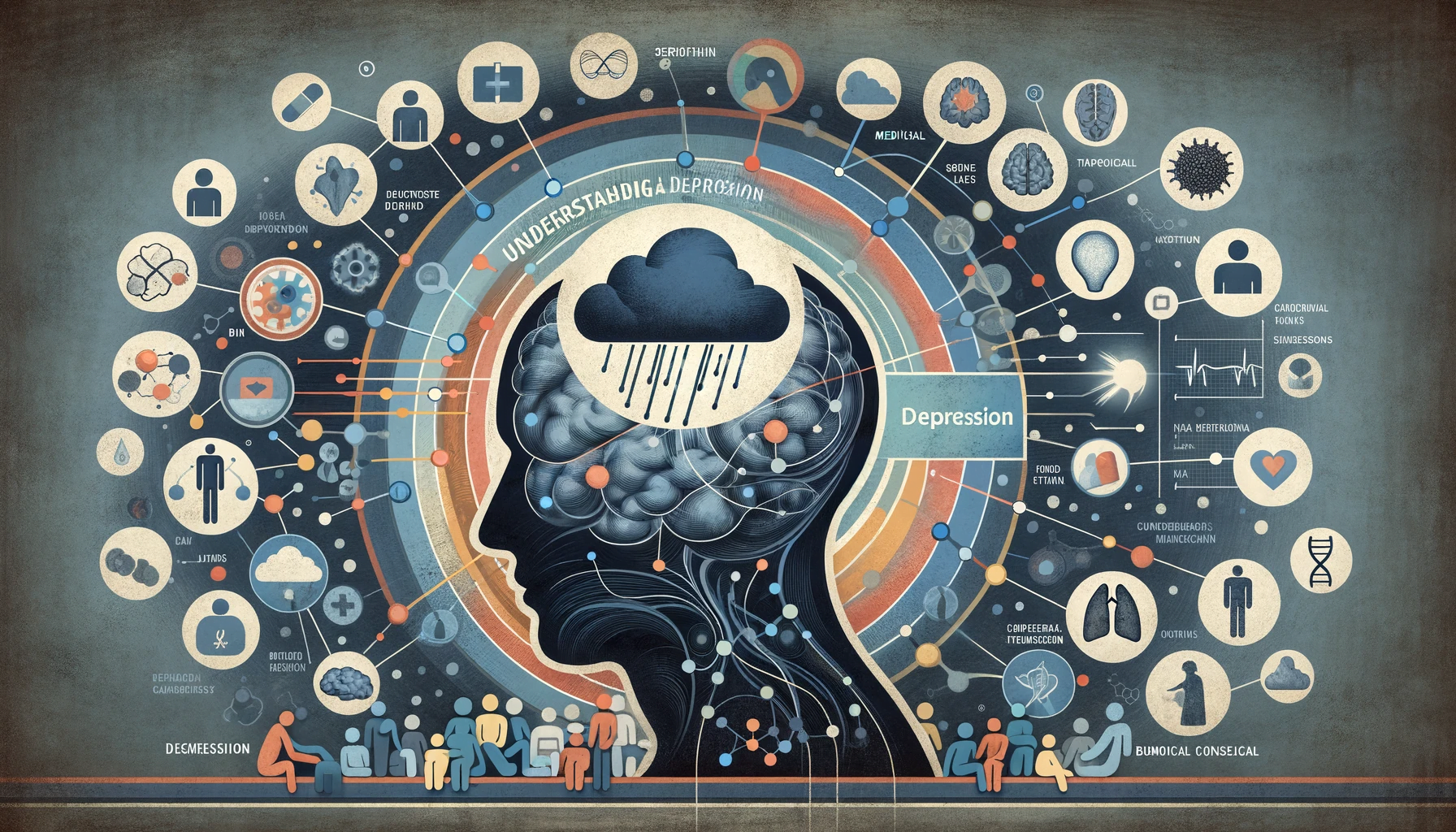Introduction:
Depression is more than just a low mood – it’s a serious condition that affects your physical and mental health. While we all feel sad, moody, or low from time to time, some people experience these feelings intensely, for long periods, and sometimes without any apparent reason. Depression is one of the most common mental disorders, affecting millions of people globally. This article aims to shed light on what depression is, its symptoms, causes, treatment options, and the importance of seeking help.
What is Depression?
Depression is a mental health disorder characterized by persistently depressed mood or loss of interest in activities, causing significant impairment in daily life. It’s more than just a bout of the blues; depression is a long-lasting, often debilitating condition that needs to be taken seriously.
Symptoms of Depression:
- Persistent sadness, anxiousness, or “empty” mood
- Feelings of hopelessness or pessimism
- Irritability
- Feelings of guilt, worthlessness, or helplessness
- Loss of interest or pleasure in hobbies and activities
- Decreased energy or fatigue
- Moving or talking more slowly
- Difficulty sleeping, early-morning awakening, or oversleeping
- Appetite and/or weight changes
- Thoughts of death or suicide, or suicide attempts
- Aches or pains, headaches, cramps, or digestive problems without a clear physical cause and/or that do not ease even with treatment
Causes and Risk Factors:
Depression does not have a single cause; it can result from a combination of genetic, biological, environmental, and psychological factors. Risk factors include:
- Personal or family history of depression
- Major life changes, trauma, or stress
- Certain physical illnesses and medications
Treatment and Management:
Treatment for depression can involve a combination of lifestyle changes, therapy, and medication. The most common treatments include:
- Medications: Antidepressants can help to modify one’s brain chemistry.
- Psychotherapy: Talking therapies, such as cognitive-behavioral therapy (CBT) or interpersonal therapy.
- Lifestyle Changes: Regular exercise, adequate sleep, and a healthy diet can help reduce symptoms of depression.
- Support Groups: Sharing experiences with others facing similar challenges can provide emotional support.
The Importance of Seeking Help:
Depression is a serious condition that doesn’t just affect one’s mental health; it can also have profound effects on physical health and overall quality of life. Seeking help is the first step toward recovery. Treatment can alleviate symptoms in most people with depression, even those with the most severe cases.
Conclusion:
Depression is a common but serious mood disorder that needs understanding and medical care. If left untreated, it can be devastating, leading to serious health complications and impacting every area of life. However, with the right treatment and support, the vast majority of people with depression can overcome it. If you or someone you know is experiencing symptoms of depression, reach out to a healthcare professional. Remember, depression is not just a weakness or something that you can “snap out of” – it’s a real medical condition that requires professional care.

Leave a Reply